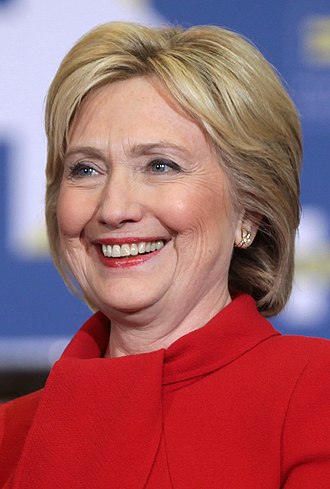Mass Primary Nearing, Sanders Opts for a Base Hit at UMass…
UPDATED 2/24/16 3:47PM: For grammar & clarity.
AMHERST—Following his momentum blunting-loss 2500 miles away in Nevada, Vermont Senator Bernie Sanders came to the University of Massachusetts Monday night to rally his youngest and arguably most fervent supporters eight days before the Bay State votes in the Democratic presidential primary.
On the one hand, returning to the commonwealth’s flagship university could boost turnout among a demographic Sanders needs—and is notoriously unreliable in elections—and bolster his chance of netting more delegates than former Secretary of State Hillary Clinton on Super Tuesday. But by rallying in reliably friendly territory, Sanders forsook an opportunity to make a play for Massachusetts’s urban voters.
While the event was Sanders’s biggest here yet, it did not fill the arena. The thousands-strong, crowd was awash with enthusiasm for the lovably cranky longtime lawmaker, but hundreds of seats remained empty.

The Second Massachusetts Conressional is in pink, ringing Quabbin Reservoir. Click image for larger view. (via malegislature.gov)
From a delegate-math perspective the visit might make sense. Amherst and Northampton, the anchors of Hampshire County—which broke for Barack Obama in 2008 even as Clinton romped statewide—are in the 2nd Congressional District along with Worcester, another big college town. A strong student showing could yield Sanders extra delegates even if he narrowly loses Massachusetts on Super Tuesday.
At the same time, the GOTV feeling of the rally—Sanders’s state director came out early to remind attendees to vote, volunteer and spread the word—also seemed like a missed opportunity.
Holyoke City Councilor Jossie Valentin, who fired up supporters in both English and Spanish before introducing Sanders, said the problem was finding a venue in a place like her city to meet the demand.

Support from pols like Jossie Valentin may not match the magnitude of the political support Clinton has, but it is a huuuuuge boost for Sanders. Is it enough to expand beyond his base? (via Facebook/Valentin campaign)
“There’s nothing that would hold that quantity of people,” she told WMassP&I in an interview.
Despite noted support from some of Hampden County’s top Latino pols, Sanders himself seemed to be doing little Monday night to engage beyond its base.
“It’s not revolutionary to hold a rally in a town that is predominately white and middle-class,” Natalia Munoz, a columnist for El Sol Latino who also has a radio show on WHMP, said of Sanders’s Amherst event.
Sanders’s remarks mirrored his typical stump, but there was a broader range of topics compared to his usual emphasis on Wall Street and plutocratic domination of elections. This seemed in partial reaction to Clinton’s casting of Sanders of a single-issue candidate.
It was not entirely absent, however, with allusive references to Clinton’s fundraising and her speaking fees. “Let’s tell the truth and let’s acknowledge that the campaign finance system we have today in America is corrupt.”
(This point, too, has drawn ire from Clinton supporters who observe Sanders has helped the Democratic party raise money from Wall Street).
Sanders ended on a note about criminal justice reform including jailing bankers who wreak havoc on the economy. “We’re going to bring justice back to a criminal justice system.”

Senator Bernie Sanders (via wikipedia)
Though he sought to draw distinctions with Clinton, on some of the very issues he seemed to imply only he could produce progress—by virtue of claiming to be free of money’s grip on American politics—there was virtually no daylight between the two. Among those issue were pay equity for men and women, protecting Planned Parenthood and refinancing college loan debts.
But there was plenty of distance from Clinton, whose Saturday win in Nevada put the wind back in her sails after a blowout 22 point loss in New Hampshire.
Sanders’s calls for single-payer healthcare and free public college tuition drew uproarious applause from the overwhelmingly white, student-age crowd.
Young people, Sanders said must be thinking, “What crime did I commit that I have to be paying back debts of $50 to 100,000 of student debt.”

Fmr. Secretary of State Hillary Clinton (via wikipedia)
Clinton has countered that reopening the healthcare debate after the crucible of passing the Affordable Care Act in 2010—when many of those in the Mullins Center were probably not even thinking about politics—would only threaten the progress so far.
While Sanders noted specific funding sources for his programs like free tuition, he did not mention the other side of the equation. While he correctly noted a bachelor’s degree has become all but essential to securing a job today, Sanders made no mention of the colleges’s expenses—including capital costs for housing and nonacademic amenities—that have helped drive tuition hikes.
Moreover, Sanders had no new response to Clinton’s critique that Republican governors could neuter the Vermont senator’s proposal by cutting or resisting increases to funding for public higher education.
“It’s time for all of us to get substantive answers on how the candidates will make good on campaign promises”, Munoz, who supports Clinton, emailed. “Otherwise we’re not voters, we’re hapless cheerleaders.”

The Mulllin Center about 30 minutes before the announced start time, though the program did begin late. People were filing in after this point. (WMassP&I)
Despite the strong intros from Valentin and Peru State Rep Paul Mark, who has deep ties to organized labor, and the senator’s remarks on issues of concern to all people—criminal justice reform, wages and LGBT rights—the tone and tenor was geared for his adoring fans, egging them on to actually vote on March 1.
There is reason to believe that Sanders could go outside his comfort zone and appeal to area Latinos in a way the data suggest he did not in Nevada.
Most Latinos in the 413 are Puerto Rican and as such face different issues than those from elsewhere in Latin America. Being citizens, immigration reform is less of a priority and Sanders’s condemnation of inequities in society could appeal to Latinos feeling disconnected from the broader communities in which they reside.
Problems on the island could provide him with an opening, too. “He has been vocal in his support for Puerto Rico and the financial crisis the island is going through,” Valentin noted.
@JossieValentin working it at the @UMass rally for @BernieSanders #mapoli #FeelTheBern pic.twitter.com/UzzTu1ohb2
— Joe Caiazzo (@joecaiazzo) February 23, 2016
Little from Sanders’s visit indicates that message permeated through the “tofu curtain” separating Hampshire County’s college towns from Hampden County’s more diverse, ex-industrial cities like Holyoke and Springfield.
Whatever Sanders’s intentions, in his speech, he expressed ambitions for the whole state.
“We were way behind here in Massachusetts,” he said. Alluding to recent polling Sanders added, “That is changing as well.”
Perhaps—if his supporters here actually show up on primary day.
